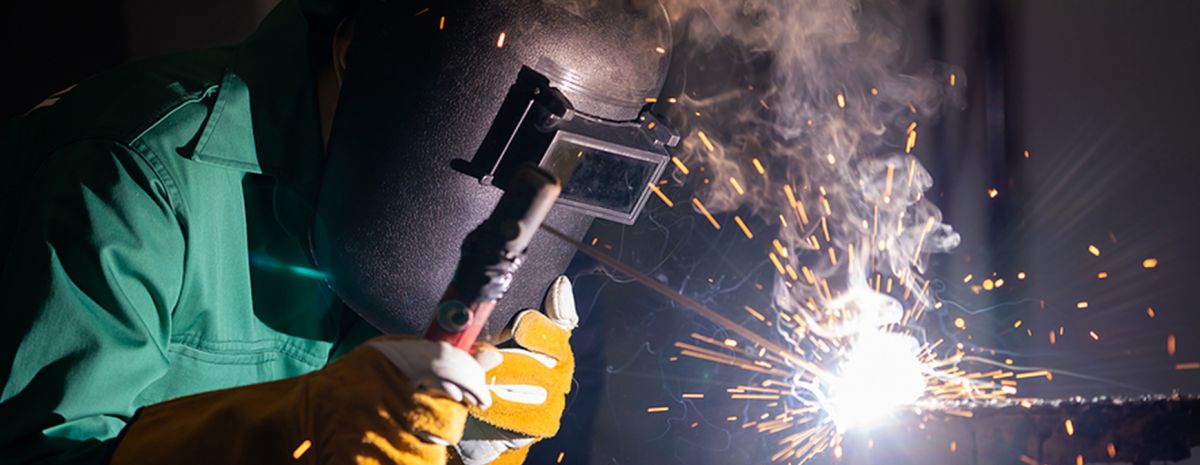TWS is a Great Training Option for Everyone
Learn more about how we can prepare you to advance your career.
Are you interested in becoming a welder? There are a few steps that you must complete to become a welder. These include completion of a high school diploma or GED. Then, you must complete 3 to 4 years of apprenticeship that can include a 7-month Professional Welding program from Tulsa Welding School. Once you complete your welding apprenticeship, you are eligible to take a licensure exam and become a licensed welder.
How To Become a Welder at TWS
When it comes to learning welding, you have options. One of the best options is attending the Professional Welding program at Tulsa Welding School. The 7-month welding program is offered at our Tulsa, Jacksonville, Houston and Dallas Metro campuses. Our welding graduates work in many interesting industries that include:
Aerospace and Aviation – this industry uses structural welding to construct aircraft and spacecraft for aviation. Aircraft welding uses different materials like tungsten, beryllium, titanium, and aluminum.
Automotive Shops – the most common types of welding technique that are used in automotive shops include metal inert gas (MIG), plasma arc welding (PAW) and tungsten inert gas (TIG) welding.
Have You Considered a Career in the Skilled Trades?
Fill out the form to recieve a no obligation info packet.
Shipbuilding – welders in this industry help build and repair ships. They may repair metal parts of the ship, and weld metals based on blueprints to increase ship integrity to withstand the pressure of submersion.
Construction – welding is used in commercial and industrial construction to connect steal beams, columns and footers that support the building structure.
The Military – welding is a technique that translates to many roles in the military. From building structures to fabricating aircraft, welding is an important skill for both active service and veteran soldiers.
Manufacturing – welding is used in many commercial applications like making vehicles, laptops, and other retail products. Welders in manufacturing can help support automated welding equipment and sheet metal fabrication.
What Do You Learn at TWS?
We offer classes that are flexible. You have the option to learn welding in the morning, afternoon or evening. Our classes train you in the fundamentals of welding that include the following welding techniques:
Shielded Metal Arc Welding (SMAW) – commonly referred to as arc or stick welding, SMAW is a technique that uses a disposable flux-covered electrode that melts during welding.
Metal Inert Gas (MIG) Welding – a welding process of an electric arc that forms between an electrode and metal that heats the metal until it melts and creates a joint.
Tungsten Inert Gas (TIG) Welding – a welding process that uses a non-consumable tungsten electrodes with shielding gas to join metal together.
High-Frequency TIG Welding – a touchless form of welding that uses arc initiation. It prevents the welding puddle from contamination to avoid structural defects.
Flux-cored Arc Welding – a welding process that uses metal active gas to heat dirty, rusted or contaminated metal and create welds and joints.
Structural Welding – the welding of iron and steel to create buildings, bridges, ships and other structures.
Pipe Welding – a type of welding that uses MIG and TIG processes to join pipes together that carry liquids, chemicals or gas through a transportation system.
Want to Learn More?
The Professional Welder program at Tulsa Welding School’s starts by helping you know what it’s like to be a welder in interactive workshop courses and welding booths. You’ll be trained in structural, flux core, and pipe welding in as little as seven months. You’ll also be prepared to excel in job interviews and welding tests for various certifications.
Read about the types of welding careers you can pursue with your skills. Ready to start a Professional Welding program? Contact us today about our welding certification preparation program.






